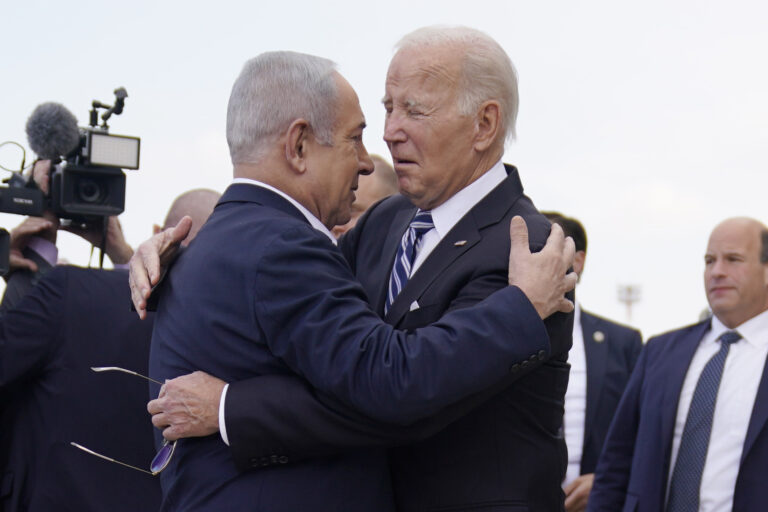As President Joe Biden approaches the end of his term, his administration is coming under fire for policies that punish Israel while easing restrictions on Hamas and Hezbollah. The president, once vocal in his support of Israel after the Oct. 7 massacre, now appears to be bending to anti-Israel pressures within his own party.
The controversy intensified last week when the Biden administration reversed a 2022 Treasury Department decision that barred the U.S.-based Foundation for Global Political Exchange from hosting Hamas and Hezbollah representatives at a Beirut conference. The sudden approval has drawn outrage, with critics accusing Biden of capitulating to Iran-backed terror groups.
Simultaneously, Biden has introduced Executive Order 14115, which establishes a sanctions program targeting individuals accused of threatening the West Bank’s “peace, security, and stability.” While ostensibly neutral, the sanctions have overwhelmingly targeted Israeli Jews, including settlers accused of minor property crimes or vandalism. Palestinian terrorist groups, meanwhile, have largely escaped sanction under existing U.S. terrorism laws, save for a token inclusion of the Lions’ Den terror group.
The Biden administration’s sanctions process has drawn criticism for relying on information from sources like DAWN MENA, a nonprofit linked to the Muslim Brotherhood and known for its anti-Israel positions. Critics argue the administration is imposing severe penalties, including frozen bank accounts and restricted financial access, based on unreliable and biased claims.
Sanctions have expanded beyond obscure West Bank farmers to include prominent NGOs and protest organizers. One targeted nonprofit, which defends isolated farms from theft and terror, has been accused without evidence of wrongdoing. Biden’s policies have even inspired similar actions in Canada and Britain, creating what some fear is an international trend of targeting Israel.
In a letter to the White House, 88 congressional Democrats demanded sanctions on members of the Israeli government and mainstream NGOs. Critics argue this move would punish individuals for political views and activism, without allegations of violent or illegal acts, further alienating one of America’s closest allies.
Observers see Biden’s actions as part of a larger effort to align with the goals of the anti-Israel Boycott, Divestment, and Sanctions (BDS) movement. By imposing these measures in his final months, Biden risks damaging U.S.-Israel relations and emboldening international efforts to isolate the Jewish state.
U.S. citizens have already filed a federal lawsuit challenging the constitutionality of Biden’s sanctions. Meanwhile, President-elect Donald Trump has promised to swiftly revoke these measures upon taking office, raising the possibility of using similar sanctions against progressive groups linked to Palestinian terrorism.
(YWN World Headquarters – NYC)











